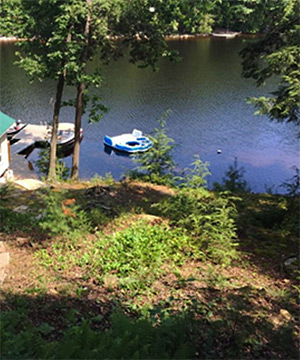Wildfire Safety
- Details
-
Published: Tuesday, 06 February 2024 08:46
The Nova Scotia wildfire season begins on March 15 and runs until October 15 each year.
During wildfire season, at 2 p.m. each day the provincial “Burnsafe” map gets updated with any burn restrictions that are in place. Visit
https://novascotia.ca/burnsafe to see if it is safe to burn!
The map legend categories include:
Grey/White: There is NO domestic brush burning or campfires permitted in Nova Scotia between 8 a.m. and 2 p.m., except Industrial permits.
Green: It is okay to burn after 2 p.m. and have the fire out by 8 a.m.
Yellow: It is okay to burn after 7 p.m. and have the fire out by 8 a.m.
Red: No burning at all.
The restrictions are put in place for the safety of the public. Burning is typically only permitted when fire risk is low. It’s safest to burn in the evenings and after/during rain events as temperatures are lower, humidity is higher, and winds tend to be calmer.
If you see someone burning when they are not supposed to be or see a wildfire, please report it to either 1-800-565-2224 or 911.
It is also important to check the municipal bylaws as your municipality may have additional burning restrictions. For example, municipal restrictions may include the time of day that burning is permitted or the type of burning appliance that is permitted.
With the active wildfire season in Nova Scotia last year, you should prepare your family and property for wildfire conditions. If your property is surrounded by brush, grassland or forest, follow these tips to prepare:
• Check for and remove fire hazards in and around your home, such as dried-out branches, leaves, and debris. Visit
firesmartcanada.ca for more info.
• Have an escape plan so all members of the family know how to get out of the house quickly and safely.
• Have an emergency plan so family members can contact each other in case they are separated during an evacuation.
• If you are on a farm, sheltering livestock may be the wrong thing to do because a wildfire could trap animals inside. Leaving animals unsheltered is preferable or, if time and personal safety permits, evacuation away from the danger zone should be considered.
If you see a fire approaching your home or community, report it immediately by dialing 9-1-1.
If it is safe, and there is time before the fire arrives, you should take the following action:
• Close all windows and doors in the house.
• Cover vents, windows, and other openings of the house with duct tape and/or precut pieces of plywood.
• Park your car, positioned forward out of the driveway. Keep car windows closed and have your valuables already packed in your car.
• Turn off propane or natural gas. Move any propane barbeques into the open, away from structures.
• Turn on the lights in the house, porch, garage, and yard.
• Put lawn sprinklers on the roof of the house and turn on the water.
• Move all combustibles away from the house, including firewood and lawn furniture.
• Evacuate your family and pets to a safe location.
• Stay tuned to your local radio station for up-to-date information on the fire and possible road closures.


 Short articles are written on topics of interest and can be found here. If you have an idea for an upcoming article, please email
Short articles are written on topics of interest and can be found here. If you have an idea for an upcoming article, please email  The Lunenburg Regional Emergency Management Organization (REMO) is urging residents to ensure they add safety preparations into their cottage opening plans.
The Lunenburg Regional Emergency Management Organization (REMO) is urging residents to ensure they add safety preparations into their cottage opening plans.